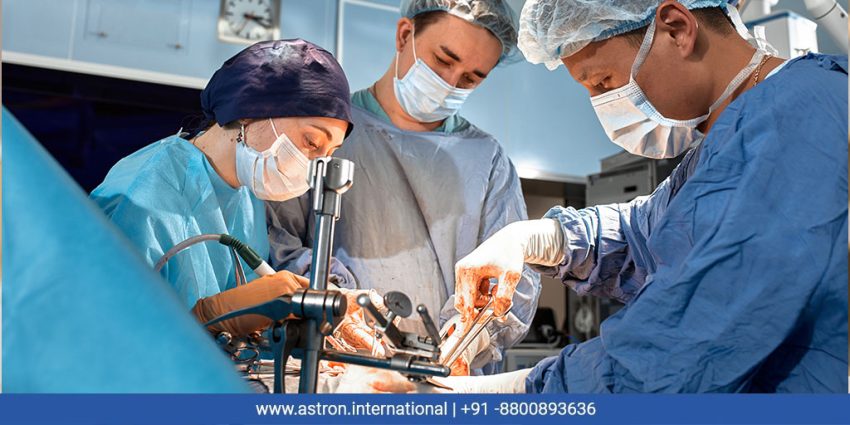The medical sector is based on a group of trained personnel who work round the clock to make sure surgical results have been achieved successfully. One of these important jobs is that of operation theatre technician. These practitioners work with surgeons, nurses and anesthetists handling surgical instruments, keeping a clean environment, and making operative rooms pass smoothly. To serve these key functions accurately and confidently, an operation theatre technician course gives a course participant the required training and practical skills.
Understanding Surgical Procedures and Protocols
The knowledge on surgical procedures is one of the lessons that have been taught in the operation theatre technician course as one of the most important lessons. The students are informed of the various forms of surgeries, stages, and tools involved in the various surgeries. This is the knowledge that enables them to have a clue of what the surgeon requires in an operation.
They also learn about pre-operative and post-operative care whereby all processes of the procedure are well done to the end. This insight will make operation theatre technicians a useful part of the surgical team, which will assist doctors in their accuracy and efficiency in surgical practices.
Maintaining Sterilization and Infection Control
A successful surgery is based on cleanliness and sterilization. Operation theatre technician course also focuses on the need to ensure the sterility of the environment. Students are being trained on how to sterilize, handle surgical equipment and how to use personal protective equipment (PPE).
They also get to know about infection control measures, waste disposal and other measures that can help prevent contamination in the operating room. The practices are core in making sure that the safety of the patient is in place and the chances of hospital-acquired infection are minimized.
Instrument Handling and Equipment Management
Machine and surgical instruments are critical in any surgery. In a course of operation theatre technician, the students are given practical training on how to identify these tools, maintain them and manage them. They are taught on how to prepare instrument trays prior to surgery and to make sure that every equipment is working.
Operation theatre technicians also have the responsibility of installing and maintaining equipment such as anesthesia equipment, suction equipment, and monitoring equipment. They are very keen on details and this will not make them wait to conduct a surgery on any technical fault or unavailability of tools.
Emergency Response and Patient Care
In an operating theatre, it is a high pressure environment and an emergency situation may occur anytime. Operation theatre technician course makes one be ready to act calmly and efficiently during critical circumstances. They get to know how they can help the surgical team to deal with emergency situations like sudden blood loss, variations in vital signs, or malfunctioning of equipment.
Besides technical skills, they are made to understand how to take care of patients. Technicians provide patients with caring and professional support in all the stages, including the preparation of patients to be operated on and moving them safely after the operation.
Team Coordination and Communication Skills
A good operation needs the smooth working of a team. The operation theatre technician course is highly emphasized on the coordination of the doctors, nurses and other support staff. During surgical procedures, students learn how to communicate, especially to give instructions accurately.
This is a competence to operate effectively as a part of a team to make sure the surgery is carried out safely and without misunderstanding. With time, such communication skills also equip the technicians with the ability to assume leadership roles in bigger hospital arrangements.
Conclusion
An operation theatre technician course is more than just a technical training, it instills in an individual discipline, concentration and confidence in dealing with high stakes situations. The combination of theory and practical application helps students to develop crucial skills like managing instruments, infection control, patient care and teamwork.
With the help of an operation theatre technician course, the future healthcare worker can acquire the knowledge required to assist surgeons and make operations successful. This specific education does not only enhance the performance of the hospital but also assists in the provision of safe and reliable surgery to the patients.

